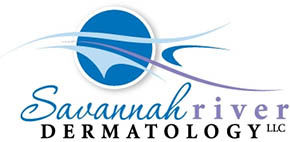November is National Eczema Awareness Month! We’ve talked about what eczema is and some treatment options for it before, but now we’re going to dive deeper into how to nourish your skin while living with eczema.
To understand how to care for eczema, we first need to understand how to best care for our skin’s barrier – or the topmost layer of our skin where eczema occurs. Your skin barrier is made up of skin cells and specialized immune system cells which form a physical and functional protection system. They work together like a wall to keep out invading organisms and substances that might harm our body.
Eczema causes the skin barrier to work less effectively. This is due to a few reasons, but one being that people with eczema often have differences in the gene that codes for a key protein called filaggrin (National Institutes of Health (NIH)). Filaggrin helps structurally, binding keratin filaments together to strengthen and flatten skin cells.Without enough properly working filaggrin, skin cells can lose moisture, shrink and develop gaps between them. These gaps allow things through the barrier as well as cause skin to become dry and itchy. Alternatively, there is also evidence to suggest that people with eczema have skin lacking in ceramide, lipids that lock in moisture and help prevent the entry of germs into the body (NationalEczema.org). This would be another reason why someone might struggle with eczema.
Along with talking with a member of our dermatologist team, we recommend doing the following to help manage your eczema and strengthen your skin barrier during cooler weather.
- Moisturize: Lock in moisture by using a thick-consistency cream or ointment specially formulated for sensitive, dry skin.
- Minimize exposure to allergens or potential triggers: We know it can be hard to pinpoint your triggers, but try to take note of anything that you do before a flare-up occurs to try and nail down what it is that causes a reaction. Common triggers include: changes in humidity, heat, or any known allergens.
- Bath rather than shower: we recommend gently bathing in warm – not hot – water for 10 – 15 minutes which is long enough to hydrate but not deplete the skin barrier’s moisture levels.
If you are not seeing enough improvement, please contact our team for an appointment where we can help assess your condition and make a plan to help alleviate and improve your symptoms.
The information presented in this blog is for informational purposes only and should not be taken as medical advice. Sources for the above information include NationalEczema.org. If you have questions or concerns, please call our office or make an appointment with a medical professional. Savannah River Dermatology is located at 575 Furys Ferry Rd in Augusta, Ga. Our office can be reached at 706-691-7079.








